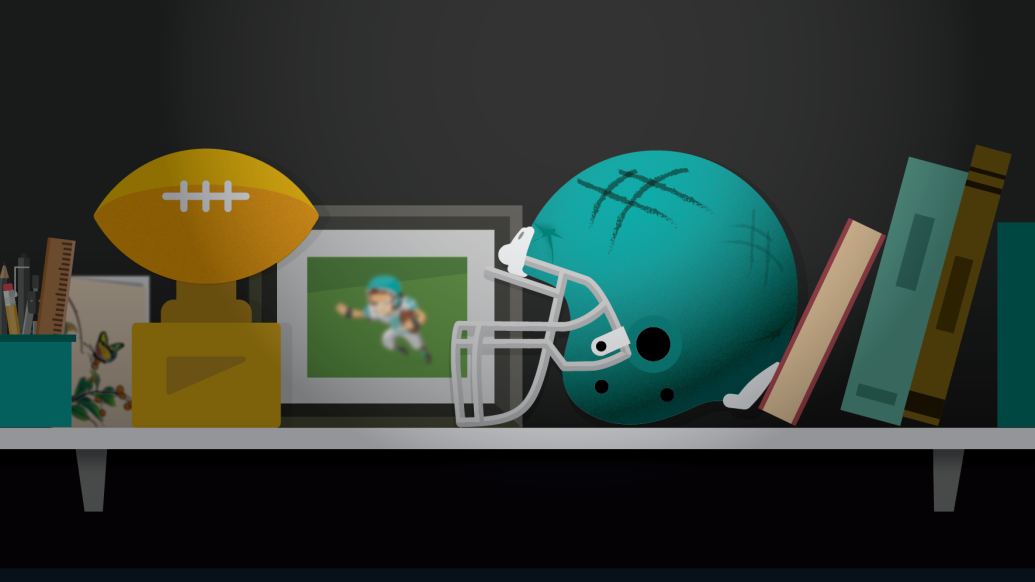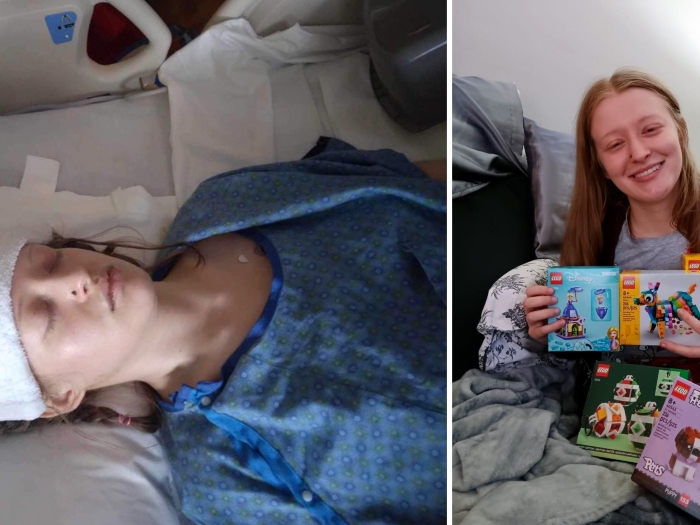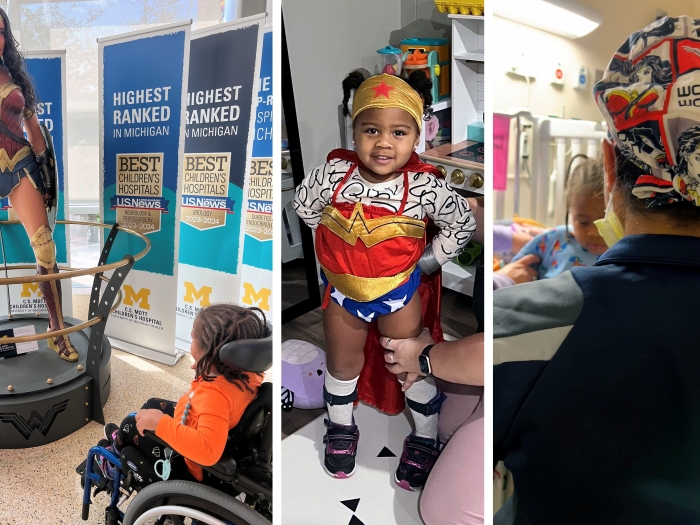Most concussion patients heal in a short amount of time. Those who don’t could benefit from a specialized plan to address both physical and mental health.
7:00 AM
Author |

With proper diagnosis and care, a concussion will most times heal on its own — typically over two to four weeks.
MORE FROM MICHIGAN: Sign up for our weekly newsletter
"In general, you'll have a brief period of feeling really lousy but are going to recover quickly," says Marie VanTubbergen, Ph.D., an assistant professor in the department of physical medicine and rehabilitation at the University of Michigan.
But for concussion patients who don't see signs of improvement, neuropsychology — or work with a psychologist trained in brain injury — may make a difference.
Offered through Michigan Medicine's NeuroSport clinic, the approach combines a neuropsychological screening with a personalized action plan tailored to address each patient's challenges. These challenges may include the psychological stress that can come with injury and recovery.
"Concussion can really throw someone out of their routine, so we try to learn how this injury has disrupted their life," says VanTubbergen, who co-leads U-M's neuropsychology practice with Abigail Johnson, Ph.D.
She spoke about her specialized role and what to expect at a consultation.
At what point do you see concussion patients?
VanTubbergen: In general, the idea is that even among youths, people are more or less back to their baseline in three to four weeks. Patients are referred to NeuroSport from the emergency room; they will typically follow up with NeuroSport for subsequent visits.
NeuroSport doesn't refer patients to our clinic unless someone has already passed that window where they would expect gains to be made. We only see the patients who are not following that nice recovery curve; their symptoms, such as difficulties concentrating or problems with schoolwork, are still lingering.
How does the evaluation work?
VanTubbergen: We do a half-day intervention with a brief neurocognitive screening and a pretty in-depth psychological interview really trying to find out about this person as a whole — their pre-existing strengths and weaknesses.
SEE ALSO: Tips for Keeping Student-Athletes Safe After Common Injuries
We also spend time with parents while the child is doing the screening. Parents have a lot of stress and worry about how their child is recovering as well as great insight into how their child is functioning day to day. This gives us a chance to provide education and enlist their support for some behavioral changes. We do a CBT (cognitive behavioral therapy) intervention with the child that provides education as well as goal setting to increase participation in life activities.
Families are sent out with a set of psychological and behavioral strategies we want them to try pretty intensively for the first week; a really holistic plan that might be beneficial.
What might that plan involve?
VanTubbergen: Basic self-care, making a concerted effort to improve a person's sleep habits, nutrition, hydration and exercise. Those are easily disrupted after a concussion, which can throw someone out of their normal routine.
We really try to get people to focus on taking care of themselves, sometimes in new ways, to optimize their recovery. As an example, we know that exercise is so beneficial, yet for people who are used to performing in sports at a high level it can be difficult to see the value in taking a walk or other low-level type of exercise.
We know concussions can increase people's stress, so we look at some very straightforward cognitive and behavioral strategies for managing stress — breathing exercises or meditation as well as really reframing or challenging people on their thoughts.
Why is addressing patients' mental health important?
VanTubbergen: Research is pretty clear that people who have anxiety or depression are at a much greater risk of having prolonged concussion symptoms. A lot of times, we're spending time with families talking about these pre-existing factors.
If you think about a typical high school athlete, these are people used to achieving in school on a very rigorous schedule while balancing 10 to 15 hours a week of sports. There are a lot of worries about falling behind, which can be super stressful.
So we say, OK, we want you participating, but you can't operate at your normal capacity right now. Of your classes, what's the one that's most important to keep up to date? How are we going to schedule some study time that isn't going to aggravate your symptoms but also give you peace of mind? How can you work with your school to minimize the sense of playing catch-up and instead be working on the same things as the rest of your class?
We try and come up with a very concrete plan. The idea is a graduated return to your normal activities.
When do you follow up with patients?
VanTubbergen: We try to have them come back relatively soon, usually one or two weeks later. That's when we check in about which things have worked and which didn't, and review all the neurocognitive screening scores.
SEE ALSO: A Team Approach to Concussion Care Changes One Athlete's Outlook
It if seems like the exercises are helping, sometimes that's it — just keep going on that track. That happens a decent amount of the time, especially if the screening results have been reassuring in terms of their overall thinking skills. We may refine some recommendations that family can pass along to schools.
Sometimes, though, we suggest the family find a therapist who can continue to help cope with their symptoms while also staying focused on their life goals and activities. We encourage them to go to someone with a strong background in cognitive behavioral therapy.
Occasionally, we do recommend more intensive neuropsychological evaluation or a repeat screening if we feel that more detailed or follow-up information would help with return-to-learn and return-to-play decisions.

Explore a variety of healthcare news & stories by visiting the Health Lab home page for more articles.

Department of Communication at Michigan Medicine
Want top health & research news weekly? Sign up for Health Lab’s newsletters today!





